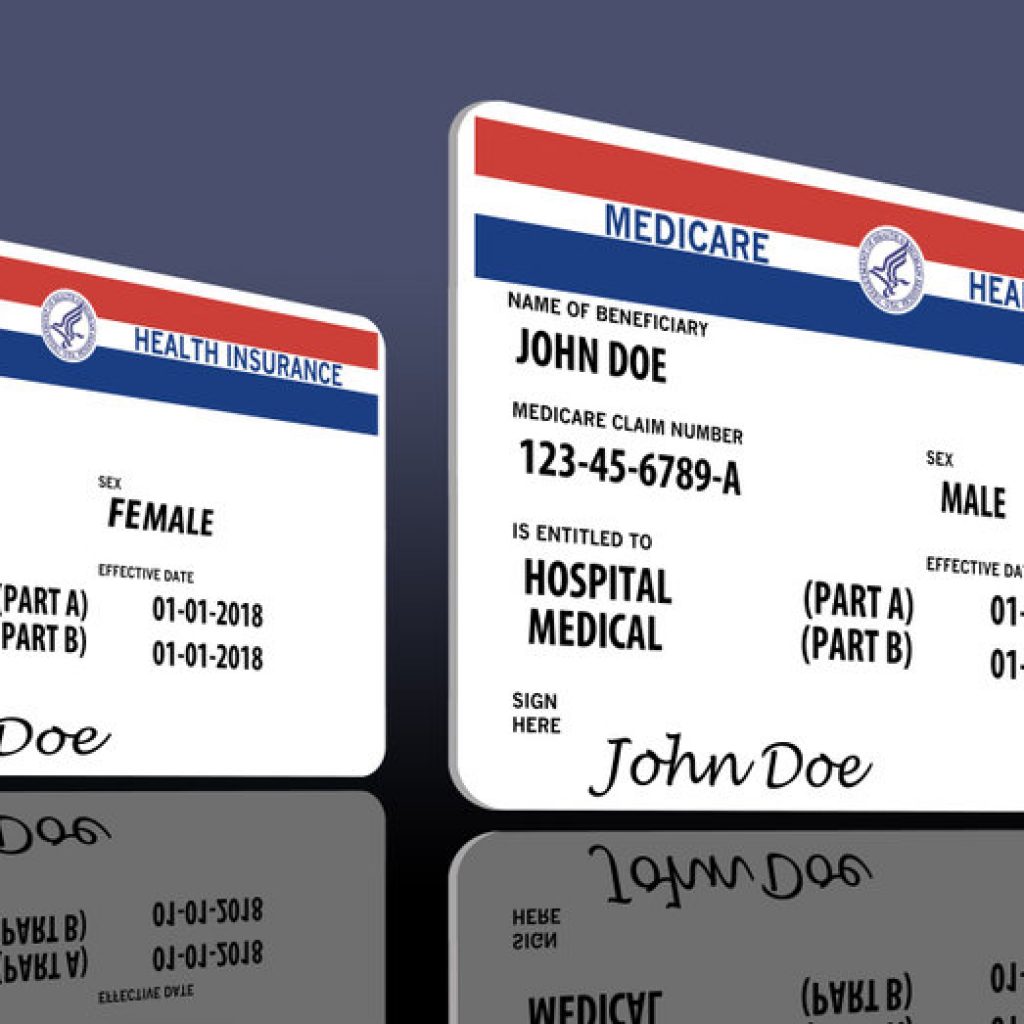DAN LABRIOLA, ND
The news is good. Medicare patients have significantly greater access to naturopathic services starting this open enrollment period (October 15th to December 7th, 2021). This is likely a result of insurers responding to pressure from both brokers and patients to add naturopathic services to Medicare Advantage plans. A little background is helpful in understanding exactly what has changed and why, and what we need to do to take advantage of this opportunity.
Naturopathic Medicine & Medicare
Some background may help here. Amazingly, CMS (Centers for Medicare & Medicaid Services) does not directly cover naturopathic services in licensing states. The population served by naturopathic physicians is overwhelmingly burdened by chronic disease, metabolic problems, and functional issues that they frequently treat effectively, safely, and economically.
The quality, safety, and value of naturopathic therapies are well established and backed by clinical evidence, especially for the most common diagnoses in the Medicare cohort. Our therapies have remarkably fewer, if any, adverse effects compared to the medications commonly used, they result in outcomes that are comparable or better than those for drugs, and they deliver these positive outcomes with cost savings. The American Association of Naturopathic Physicians (AANP) has created an excellent review of the comparative costs between naturopathic medicine and conventional medicine.1
Despite these facts, there are formidable obstacles between our profession and direct Medicare coverage, both political and a lack of understanding of the benefits naturopathic care can bring to their patients. Medicare’s resistance to accepting naturopathic physicians has been partly based on the assumption that this would increase the financial burden on this cash-challenged agency. This couldn’t be farther from the truth. We even managed to get naturopathic physicians on the Medicare Board of Trustees for a time; but, unfortunately, that didn’t help. We still don’t have direct Medicare coverage. To give you a sense of the enormity of this issue, Medicare underwrites more than 300 million patient encounters per year that naturopathic medicine does not have the opportunity to serve. Access to these patients represents a potential sea change for our profession.
Original Medicare vs Medicare Advantage
Medicare entitlement underwrites a significant portion of the medical costs for enrollees, but leaves some medical costs uncovered. This is where commercial insurance comes in, covering some of those uncovered costs in the form of Medicare supplement plans and Medicare Advantage plans. These 2 types of plans are quite different from each other. A Medicare enrollee can choose one or the other but not both.
Beneficiaries on Original Medicare typically have Medicare Part A and Part B, Part D (for prescription drugs), and a Medicare Supplement plan to cover most out-of-pocket medical expenses not covered by Medicare itself, such as a hospital deductible and a 20% medical coinsurance. Because Supplement plans (aka Medigaps) pay after Medicare, they only cover services authorized by Medicare, which excludes naturopathic care.
Medicare Advantage plans replace Original Medicare (Part A and Part B). With a Medicare Advantage plan, the insurance company – not Medicare – provides all your health coverage. You don’t lose any benefits in terms of the basic Medicare-covered services. Medicare Advantage plans frequently include extra benefits such as routine vision and dental care. Nearly all include Part D prescription drug coverage. In exchange for these extra benefits, participants must follow the plan’s rules. These often include using only approved local in-network providers and getting prior authorization for certain tests and procedures. Members of these plans pay for individual medical services along the way in the form of copays and coinsurances.
Despite their increased flexibility, Advantage plans historically covered only services from provider types who are eligible for direct Medicare coverage, even though that was not a legal requirement. Another challenge has been that they are often configured differently depending on the county or other local jurisdiction, making the global change we need difficult. There have been some isolated successes covering naturopathic care, but they have all been local.
What Has Changed
Recognizing that Medicare Advantage plans have been the only avenue by which naturopathic care would be covered for Medicare beneficiaries, there has been years-long pressure on Medicare Advantage plan companies from brokers and patients (including from many of our clinic’s 4000+ patient contact list) to expand these plans to include naturopathic coverage. The message was that naturopathic care would be an effective, cost-saving addition to their services, and one that their patients wanted. Insurers already had experience with naturopathic physicians. Guidelines such as licensure and education were already in place for selecting providers to their panels. Hence, non-recurring costs for adding NDs were minimal, and the cost savings were obvious.
Apparently, many insurers agreed, since a remarkably greater number of them are now offering Medicare Advantage plans that include naturopathic medicine and over a much broader geographic area.
So, What Are the Next Steps?
This great opportunity only works for us if our Medicare-entitled patients know about it. These plans are purchased through brokers or directly from the insurance companies; however, most brokers and company representatives don’t seem to know about them, leading patients instead to other programs.
First, we need to make our patients aware of the availability of these programs. I am sending an email to every patient in our database regardless of age. Everyone knows someone on Medicare, and there can be no better ambassador for promoting naturopathic medicine than a patient who has benefitted from our care. For many older patients, the lack of insurance coverage has been the main obstacle to seeing an ND.
Second, we need to connect patients to available policies. I encourage all patients to use a broker who has access to all of the plans and their attributes. Keep in mind, however, that not all brokers are created equal. That certainly has been the case for my patients. With that in mind, suggest that if they don’t get a satisfactory response from their current broker, there are others who might do a better job. I am happy to share the contact information for the broker I have had good success with. He is well connected and, if you are in a jurisdiction in which he does not practice, he has agreed to provide you the name of a broker who will take this seriously. Feel free to call or email me for the broker’s contact information.
Third, provide some clinic support for patients who have difficulty navigating the mare’s nest of Medicare rules. This is 1 reason I provided a little more depth in the explanations above, which you may choose to include in your contact with patients. Even so, this can still be a daunting experience for some patients. I’ve found it useful to encourage them to call the clinic if they have more questions. The patients feel supported, and it’s an opportunity to get them to a good broker who can get them what they need. Federal rules do not allow me to cite the insurers who are offering this care, but a motivated broker can research the companies and give you or your patient a clear picture of who the players are, plan details, and costs.
For most patients, these plans can only be accessed during open enrollment. The current open enrollment period ends early December. There is a second enrollment period in early 2022 for patients who are already on a Medicare Advantage plan and want to switch plans. There are rules defining all of this that a broker can explain.
This is a great moment for naturopathic medicine, especially for our newest doctors as they start building a practice. It has been a long wait, and there will likely be room for improvement, but the playing field just got a little more level.
Reference
- American Association of Naturopathic Physicians. Naturopathic Medicine is Effective and Cost-Effective. 2017. Available at: http://integrativemedicalspecialists.com/wordpress/wp-content/uploads/2019/04/Efficacy-Cost-Effectiveness-2017-FINAL-3.pdf. Accessed October 15, 2021.

Dan Labriola, ND practices at the Northwest Natural Health Specialty Care Clinic. He was the co-principal author (with Dr Les Griffith) of the naturopathic law in Washington State, written when the profession was being deregulated. He is the past-president of the WA Association of Naturopathic Physicians, past-member of AANP’s Board of Directors, Principal Investigator in clinical research, a staff physician and medical director of large hospital systems, a respected author in major scientific journals, Director of Safe & Sound® VitaQual® nutritional supplements for naturopathic physicians, and was voted among the Top Doctors 7 times in Seattle and Seattle Met magazines. He can be reached at [email protected].





